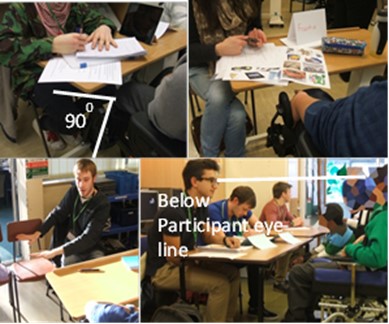Role play can be used to demonstrate or re-enact a sequence of use, task performance or user experience (UX) with an imaginary product with an imaginary service.
Role play is very effective in conjunction with low-fidelity prototype objects or interfaces. Mood boards and scenario boards can be used as background scene-setting before the start of the performance.
Multiple players or actors may be used, but is often used as an additional way of augmenting a presenting of a new product or service.
Role play can be used as part of a participatory design activity or research method, such as a focus group.

Useful links
Albinsson, L., Lind, M., Forgsefren, O., 2007. Co-Design: An Approach to Border Crossing, Network Innovation.
Kemp , J.A.M., and van Geldren, T., 1996. Co-discovery exploring: An informal method for iteratively designing consumer product. Usability evaluation in industry, (eds.) Jordan, P.W., Tomas, B., Weerdmeester B.A., and McClelland. I. L., Taylor & Francis, London.
Sanders, E. B.- N., Stappers, P.J., 2008. Co-creation and the new landscapes of design, CoDesign, International Journal of CoCreation in Design and the Arts. (4), 1 Taylor & Francis: London. pp5-18
TORRENS, G. and BLACK, K., 2011. Equipment design in inclusive physical activity and disability sport. IN: Roibas, A.C., Stamatakis, E. and Black, K. (eds). Design for Sport. Farnham: Gower, pp. 153-178. Available at: (https://dspace.lboro.ac.uk/dspace-jspui/handle/2134/9025), [Accessed: 22/09/2015]
Torrens, GE (2011) Universal Design: empathy and affinity. In Karwowski, W, Soares, M, M, Stanton, A, N, Eds, (ed) Handbook of Human Factors and Ergonomics in Consumer Products, CRC Press, pp.233-248 Available at: (http://www.crcnetbase.com/doi/abs/10.1201/b10950-19), Accessed: [23/09/015]
TORRENS, G.E. and NEWTON, H., 2013. Getting the most from working with higher education: a review of methods used within a participatory design activity involving KS3 special school pupils and undergraduate and post-graduate industrial design students. Design and Technology Education: an international journal, 18 (1), pp. 58 – 71. Available at: (https://dspace.lboro.ac.uk/dspace-jspui/handle/2134/14858), Accessed [8/10/2015]
